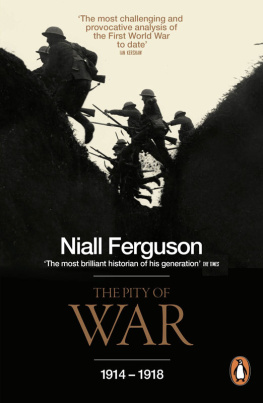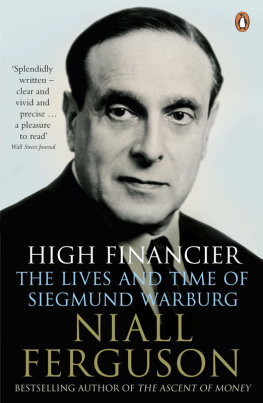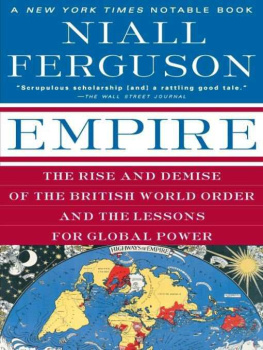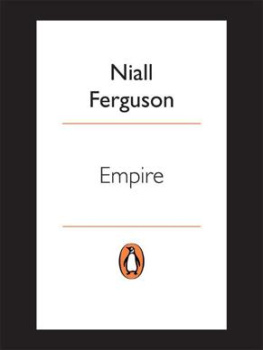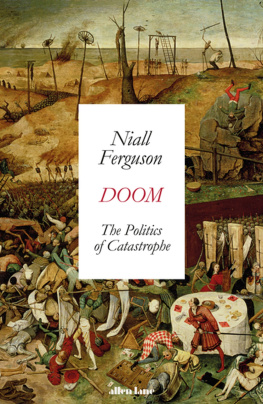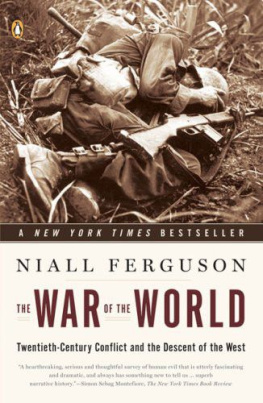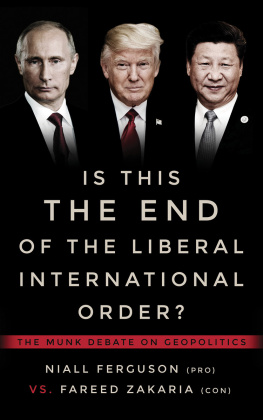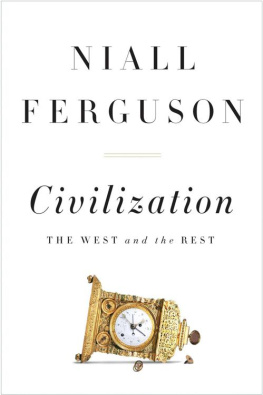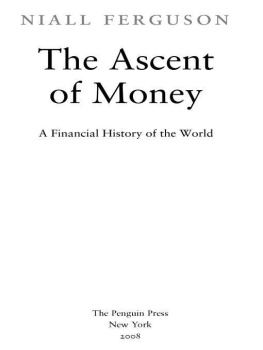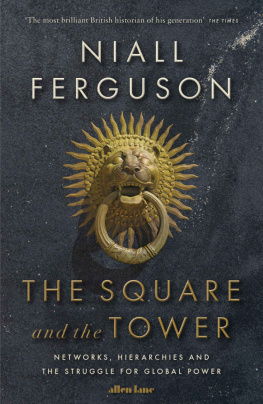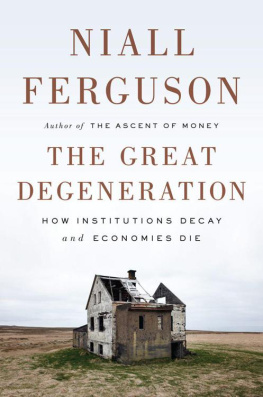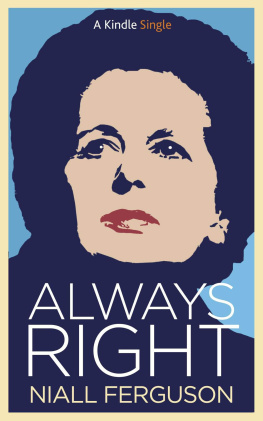Niall Ferguson - The Pity of War
Here you can read online Niall Ferguson - The Pity of War full text of the book (entire story) in english for free. Download pdf and epub, get meaning, cover and reviews about this ebook. year: 2012, publisher: Penguin, genre: History. Description of the work, (preface) as well as reviews are available. Best literature library LitArk.com created for fans of good reading and offers a wide selection of genres:
Romance novel
Science fiction
Adventure
Detective
Science
History
Home and family
Prose
Art
Politics
Computer
Non-fiction
Religion
Business
Children
Humor
Choose a favorite category and find really read worthwhile books. Enjoy immersion in the world of imagination, feel the emotions of the characters or learn something new for yourself, make an fascinating discovery.
- Book:The Pity of War
- Author:
- Publisher:Penguin
- Genre:
- Year:2012
- Rating:5 / 5
- Favourites:Add to favourites
- Your mark:
The Pity of War: summary, description and annotation
We offer to read an annotation, description, summary or preface (depends on what the author of the book "The Pity of War" wrote himself). If you haven't found the necessary information about the book — write in the comments, we will try to find it.
The controversial revisionist history of World War I that made Niall Fergusons name
The First World War killed around eight million men and bled Europe dry. More than any other event, it made the twentieth century. In this boldly conceived book and provocative, aimed to appeal not only to students but also to the general reader, Niall Ferguson explodes many of the myths surrounding the war.
Niall Ferguson is Herzog Professor of Financial History at the Stern School of Business, New York University, Visiting Professor of History, Oxford University and Senior Research Fellow, Jesus College, Oxford. His other books for Penguin include Empire, The Cash Nexus, Colossus, The War of the World, Virtual History, High Financier and Civilization.
**
Amazon.com ReviewIf someone less distinguished than Jesus College, Oxford, fellow Niall Ferguson had written The Pity of War, you could be forgiven for thinking the book was out for a few cheap headlines by contradicting almost every accepted orthodoxy about the First World War. Ferguson argues that Britain was as much to blame for the start of the war as Germany, and that, had Britain sacrificed Belgium to Germany, the 1917 Bolshevik Revolution would never have happened. Germany, he continues, would have created a united European state, and Britain could have remained a superpower. He also contends that there was little enthusiasm for the war in Britain in 1914; on the other hand, he claims the war was prolonged not by clever manipulation of the media, but by British soldiers taking pleasure in combat. If that isnt enough, he further maintains that it wasnt the severity of the conditions imposed on Germany at Versailles in 1919 that led inexorably to World War II, and blames instead the comparative leniency and the failure to collect reparations in full.
The Pity of War, with no pretensions to offering a grand narrative of the war, goes over its chosen questions like a polemical tract. As such it is immensely readable, well researched, and controversial. You may not end up agreeing with all of Fergusons arguments, but that should not deter you from reading it. All of us need our deeply held views challenged from time to time, even if only to remind us why weve got them. --John Crace, Amazon.co.uk
From Publishers WeeklyMany readers will disagree with Oxford historian Fergusons (Paper and Iron) daring revisionist account of the Great War as presented in this superbly illustrated book, but none will be bored by his elegant marshaling of facts to support his case. Ferguson argues that Germany had a justifiable fear of Russian and French militarism and was merely making a preemptive strike in August 1914. He suggests that Britain forced the escalation of what could have been a limited continental war by entering on the side of the Allies and then increased the body count on both sides through sheer ineptitude. An economic historian, Ferguson explains that Germany was efficient at inflicting maximum slaughter at minimum expense, paying just $5133 to kill each Allied serviceman. The bungling but economically advantaged Allies, on the other hand, paid $16,754 for each German head. For all the books strengths, however, Ferguson comes up short in his flawed, briefly sketched analyses of the ebb and flow of diplomatic and battlefield events. Grand strategy goes unstudied. Fergusons war is, in the end, simply an economic problem. Scarcity equals loss, and whoever has the most supplies will prevail. Ultimately, it is hard to feel satisfied with Fergusons narrow analysis of what is surely a far more complex equation.
Copyright 1999 Reed Business Information, Inc.
Niall Ferguson: author's other books
Who wrote The Pity of War? Find out the surname, the name of the author of the book and a list of all author's works by series.

